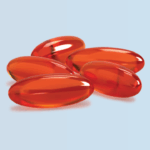
Meal replacements are the permanent way to trim down!
Have you been searching for ways to manage your weight but finding only frustration?
Fad diets for weight loss provide short-term solutions and often lack enough fiber, protein, vitamins, minerals, and other key nutrients. Such diets cause loss of lean muscle mass, slowing your body’s metabolism and zapping your energy levels. They also fail to address the causes of weight gain, including inconsistent blood sugar levels and hormonal factors. Further, many weight-loss diets also result in rapid loss of body water, tricking us into thinking that we have lost more fat than we have. Addressing the causes of weight gain with a balanced nutrient approach is key to supporting healthy and sustainable weight management, while providing enough energy for an active lifestyle.
What are meal-replacement shakes?
Offering the nutrition of a full meal, well-designed meal-replacement shakes provide suitable amounts of macro- and micronutrients, including protein, fiber, and other essential nutrients, helping to manage weight by reducing cravings and improving energy.
 Let’s examine the roles of two key nutrients found in meal-replacement shakes: protein and fiber. Research supports their important functions in satiety and weight management.
Let’s examine the roles of two key nutrients found in meal-replacement shakes: protein and fiber. Research supports their important functions in satiety and weight management.
Protein
When it comes to weight loss, ensuring appropriate protein levels is key to supporting the process. Studies suggest that increasing protein-to-carbohydrate ratios in meals can increase a feeling of fullness and decrease food intake. Increased dietary protein intake provides satiety and boosts metabolism while decreasing insulin and blood sugar responses. It is estimated that 20–25 g of high-quality and sustainable protein should be consumed three times per day. Whether you follow a plant-based diet or not, meal replacements allow you to easily meet protein requirements during weight loss to help retain muscle mass. Because muscle burns more calories than fat, the more muscle you have, the more body fat you can expect to lose and the easier it is to keep that fat off.
Research has shown that diets with plant-based proteins may improve weight status in some individuals. In one 16-week randomized trial, the impact of plant proteins on body composition and insulin resistance were investigated. Seventy-five overweight patients were randomized to follow a plant-based diet or a control diet. Only the vegan group showed significant reductions in body weight, fat mass, and insulin resistance. Similarly, a review of 19 studies compared a low-fat vegan diet to an omnivore diet in overweight participants who had blood sugar and heart health concerns. Approximately seven of the studies reported significant weight reductions among participants consuming plant-based diets.
Fiber
Increasing fiber intake also plays an important role in weight management. PolyGlycopleX® (PGX®) is a unique blend of soluble fibers from natural, highly viscous polysaccharides, including konjac root, xanthan gum, and sodium alginate. The result of 10 years of research and development, PGX is both safe and convenient, helping manage weight by:
- Reducing appetite and promoting a feeling of fullness
- Reducing between-meal food cravings
- Contributing to healthy blood sugar levels already within the normal range
- Helping to lower the glycemic index
- Helping to maintain healthy total cholesterol levels already within the normal range
The ability of soluble fiber to reduce appetite and support healthy blood sugar and cholesterol levels already within the normal range is directly proportionate to the amount of water it can absorb (volume) and the thickness that it develops (viscosity) as it moves through the stomach and intestine. Since foods, especially complex carbs, are absorbed more slowly, a person will feel full for longer and sugar will be released into the bloodstream more slowly. This results in a feeling of satiety, a lesser need for snacking, and more balanced blood sugar levels throughout the day, without increasing the calories. Gram for gram, PGX beats other known dietary fibers in terms of volume and viscosity.
In one study, 52 overweight participants consumed shakes that included PGX at breakfast and lunch for 12 weeks. Along with the shakes, an additional amount of 5 g per day of PGX was consumed with 250 mL of water. Each volunteer was consuming 1,200 kcal per day, including low-fat, low-glycemic-index foods for snacks and dinners as recommended by a registered dietician. In addition to the reduction of their BMI scores, all participants lost a significant amount of weight from baseline (10.34 ± 8.22 lb), which was further reflected in the reductions in their waist and hip circumferences (2.80 ± 2.5 in and 2.20 ± 1.41 in) over the course of the study. Other research has supported similar weight-loss findings.
Meal-replacement shakes for weight management
Research has shown that replacing one or two meals per day with a healthy meal-replacement shake may be an effective weight-loss strategy, which will help improve many other health parameters. In one 8-week study, 50 over-weight men and women replaced two meals per day with a balanced nutritional 230-calorie meal replacement and consumed one regular meal. The daily target calorie limit was 1,500 calories for men and 1,200 calories for women. Researchers found significant reductions in body weight (9 lb), body fat (2.38%), and waist circumference (1.99 in), as well as improved blood sugar and heart health markers. Participants in these studies also reported improved health, reduced hunger, increased restraint in eating, and improved mental health.
Supported with meal-replacement shakes, the weight loss was found to be maintained for up to five years.
Final thoughts
Well-formulated meal-replacement shakes for a busy lifestyle or for weight management contain suitable amounts of key ingredients, such as protein, fiber, vitamins, minerals, and healthy fats, to support metabolism, reduce cravings, and improve body composition. Meal-replacement shakes can replace one or two meals per day until goals are met, and can be used as needed for weight maintenance. Always look for purity and potency, and choose a product that does not contain artificial sugars, colors, or preservatives.
Successful weight control is about more than what you eat. It’s about getting your body moving, finding a friend to root for your success, and of course, seeking the approval of your health professional before beginning any weight-loss program.
You’ve got this!












